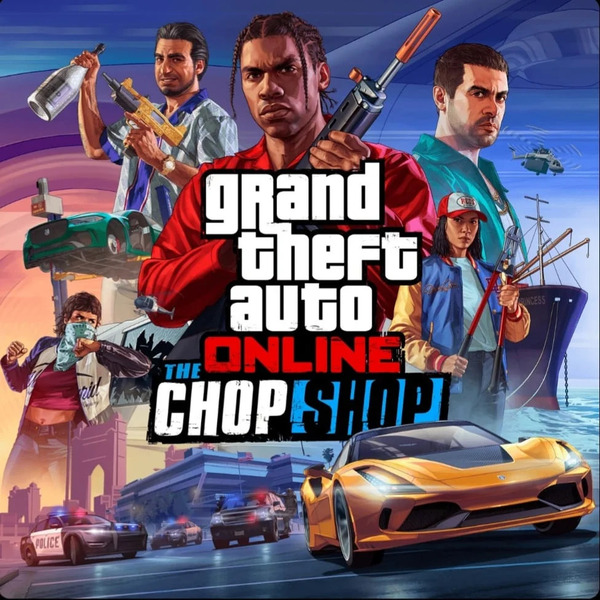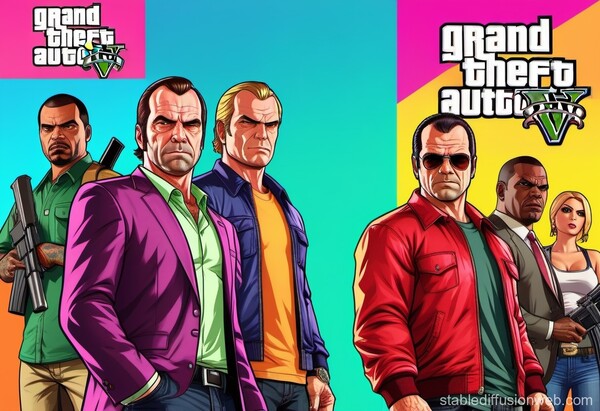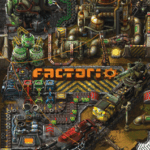Advertisement
Popular Now
Since its release in 2013, grand theft auto v (gta v) has captured the hearts of millions with its sprawling open world, engaging narrative, and thrilling multiplayer mode, gta online. Over time, the game has evolved, introducing new missions, heists, and activities, while players have continued to pour countless hours into the game. However, alongside these advancements, a controversial element has become more prevalent: the rise of microtransactions. In particular, shark cards, a form of in-game currency purchasable with real money, have come under scrutiny. The balance between grind-based progression and the temptation to spend real-world money has sparked heated debates within the community.
In this article, we will explore the deeper layers of the shark card system, examining its economic design, player reception, and broader implications for the gaming industry.
The emergence of microtransactions in gta online
When gta online launched in 2013, rockstar games aimed to create a living, breathing world where players could engage in various activities, including heists, races, and free-roam events. Initially, the in-game economy was based purely on effort. Players would earn cash by completing missions and other activities, and this currency could be used to purchase properties, vehicles, weapons, and more.
However, as the online mode expanded and rockstar continued to release content updates, it became apparent that certain high-end items required an excessive grind to obtain. With the release of shark cards, rockstar introduced a way for players to bypass the grind by purchasing in-game currency using real money. This move marked the start of the game's evolving microtransaction economy, where spending real-world money could significantly impact a player's progress and experience.
[caption id="attachment_1628" align="aligncenter" width="600"] When gta online launched in 2013, rockstar games aimed to create a living, breathing world where players could engage in various activities[/caption]
Shark cards: the premium currency
Shark cards function as a direct conversion of real-world money into in-game currency. These cards come in various denominations, ranging from $100,000 in in-game cash to millions. On the surface, shark cards offer a convenience to players who may not have the time to grind through hours of gameplay but still want to enjoy the finer aspects of gta online-such as purchasing luxury cars, properties, and other expensive items.
For many casual players, shark cards are an attractive shortcut. However, this premium currency has deeper implications, both for the player experience and the game's economy. The prices of high-end items in gta online have steadily risen, making it more difficult to earn enough in-game cash to keep up with new content releases without resorting to shark cards. For those unwilling to purchase shark cards, this leads to a repetitive, grind-heavy experience, where time investment becomes the currency for progress.
The grind versus pay debate
One of the most significant points of contention among players is the balance between grinding and paying. Players who wish to progress without spending money often find themselves needing to invest substantial time in completing missions, heists, and other activities to earn enough money for high-end items.
This grind-based progression can feel rewarding for some, as it reinforces the idea that hard work pays off. However, with each new update, rockstar has introduced more expensive content, increasing the time commitment required to stay competitive. For example, purchasing an expensive car or a luxury yacht may take weeks of grinding, depending on a player's dedication. In contrast, a player who buys a shark card can instantly acquire these items without the same effort.
This disparity creates a divide between players who are willing to spend real money and those who are not. The "pay-to-win" accusation often arises in such discussions, as those who invest in shark cards gain access to better equipment and resources faster than their counterparts. This imbalance can impact both the competitive and cooperative aspects of gta online.
Inflation and its impact on the in-game economy
The introduction of shark cards has had a profound effect on the in-game economy of gta online. Over time, as more players opt to purchase shark cards, the game's developers have continued to release increasingly expensive items to maintain the appeal of these microtransactions. This has led to a form of inflation within the game, where the prices of new content are significantly higher than what was available at launch.
For example, when gta online first launched, players could purchase a wide range of vehicles for reasonable prices. However, recent updates have introduced luxury cars, high-end properties, and military-grade equipment that cost millions of in-game dollars. This inflation makes it challenging for players who rely solely on in-game earnings to keep up with new releases. As a result, the perceived value of shark cards increases, further incentivizing their purchase.
The psychological pull of microtransactions
Shark cards and similar microtransactions are not merely a convenience; they also play into certain psychological triggers that can lead players to spend more than they initially intended. This tactic, commonly referred to as "freemium" gaming, is designed to create a cycle of desire and reward that encourages players to make impulsive purchases.
[caption id="attachment_1629" align="aligncenter" width="600"]
When gta online launched in 2013, rockstar games aimed to create a living, breathing world where players could engage in various activities[/caption]
Shark cards: the premium currency
Shark cards function as a direct conversion of real-world money into in-game currency. These cards come in various denominations, ranging from $100,000 in in-game cash to millions. On the surface, shark cards offer a convenience to players who may not have the time to grind through hours of gameplay but still want to enjoy the finer aspects of gta online-such as purchasing luxury cars, properties, and other expensive items.
For many casual players, shark cards are an attractive shortcut. However, this premium currency has deeper implications, both for the player experience and the game's economy. The prices of high-end items in gta online have steadily risen, making it more difficult to earn enough in-game cash to keep up with new content releases without resorting to shark cards. For those unwilling to purchase shark cards, this leads to a repetitive, grind-heavy experience, where time investment becomes the currency for progress.
The grind versus pay debate
One of the most significant points of contention among players is the balance between grinding and paying. Players who wish to progress without spending money often find themselves needing to invest substantial time in completing missions, heists, and other activities to earn enough money for high-end items.
This grind-based progression can feel rewarding for some, as it reinforces the idea that hard work pays off. However, with each new update, rockstar has introduced more expensive content, increasing the time commitment required to stay competitive. For example, purchasing an expensive car or a luxury yacht may take weeks of grinding, depending on a player's dedication. In contrast, a player who buys a shark card can instantly acquire these items without the same effort.
This disparity creates a divide between players who are willing to spend real money and those who are not. The "pay-to-win" accusation often arises in such discussions, as those who invest in shark cards gain access to better equipment and resources faster than their counterparts. This imbalance can impact both the competitive and cooperative aspects of gta online.
Inflation and its impact on the in-game economy
The introduction of shark cards has had a profound effect on the in-game economy of gta online. Over time, as more players opt to purchase shark cards, the game's developers have continued to release increasingly expensive items to maintain the appeal of these microtransactions. This has led to a form of inflation within the game, where the prices of new content are significantly higher than what was available at launch.
For example, when gta online first launched, players could purchase a wide range of vehicles for reasonable prices. However, recent updates have introduced luxury cars, high-end properties, and military-grade equipment that cost millions of in-game dollars. This inflation makes it challenging for players who rely solely on in-game earnings to keep up with new releases. As a result, the perceived value of shark cards increases, further incentivizing their purchase.
The psychological pull of microtransactions
Shark cards and similar microtransactions are not merely a convenience; they also play into certain psychological triggers that can lead players to spend more than they initially intended. This tactic, commonly referred to as "freemium" gaming, is designed to create a cycle of desire and reward that encourages players to make impulsive purchases.
[caption id="attachment_1629" align="aligncenter" width="600"] Shark cards function as a direct conversion of real-world money into in-game currency[/caption]
One key aspect of this strategy is the limited-time nature of many high-end items. Rockstar frequently offers exclusive content for a limited time, which creates a sense of urgency among players. This pressure, combined with the high cost of these items, pushes some players toward purchasing shark cards to avoid missing out.
Another psychological tactic involves the concept of "grind fatigue." after hours of repetitive tasks, players may become frustrated with the slow pace of progress and opt for a shark card as a way to bypass the grind. The sense of relief that comes from acquiring in-game cash without effort can be a powerful motivator for future purchases.
Ethical concerns around microtransactions
The prevalence of shark cards in gta online raises ethical questions about the role of microtransactions in gaming. Critics argue that the increasing reliance on paid content undermines the integrity of the gaming experience, particularly for players who are unwilling or unable to spend real money.
Some have gone so far as to accuse rockstar of designing the game in a way that encourages grinding to the point of frustration, subtly nudging players toward shark cards as a "solution" to their time constraints. This practice has led to concerns about the exploitation of players, particularly younger audiences who may not fully understand the financial implications of repeated microtransactions.
Moreover, the growing trend of microtransactions in the gaming industry at large, particularly in full-priced games like gta v, has sparked broader conversations about the monetization of player experiences. While free-to-play games often rely on microtransactions to support development, the inclusion of such systems in premium titles raises questions about value for money and the potential erosion of gaming as a skill-based, meritocratic experience.
Player reactions and community backlash
The introduction and expansion of shark cards have not gone unnoticed by the gta community. Over the years, players have voiced their frustration with the microtransaction system, citing the grind-heavy nature of the game and the growing cost of new content as major pain points.
Online forums, including reddit and rockstar’s own social media channels, are rife with debates about the fairness of the shark card system. Some players argue that it diminishes the sense of accomplishment by allowing those with disposable income to bypass the effort required to earn in-game rewards. Others defend the system, stating that it's an optional feature that allows busy players to enjoy the game without investing hours of grinding.
Rockstar’s response and business model
Rockstar games has largely defended its use of microtransactions in gta online, pointing to the continued success of the game as evidence of the system's viability. By regularly releasing new content and updates, rockstar has been able to keep the game relevant and engaging for its player base, with shark cards serving as a way to fund these ongoing developments.
From a business perspective, the success of shark cards cannot be denied. Gta v has become one of the highest-grossing entertainment products of all time, and much of this revenue can be attributed to its robust microtransaction system. This success has likely influenced other game developers to adopt similar monetization strategies, leading to a wider industry trend.
[caption id="attachment_1630" align="aligncenter" width="600"]
Shark cards function as a direct conversion of real-world money into in-game currency[/caption]
One key aspect of this strategy is the limited-time nature of many high-end items. Rockstar frequently offers exclusive content for a limited time, which creates a sense of urgency among players. This pressure, combined with the high cost of these items, pushes some players toward purchasing shark cards to avoid missing out.
Another psychological tactic involves the concept of "grind fatigue." after hours of repetitive tasks, players may become frustrated with the slow pace of progress and opt for a shark card as a way to bypass the grind. The sense of relief that comes from acquiring in-game cash without effort can be a powerful motivator for future purchases.
Ethical concerns around microtransactions
The prevalence of shark cards in gta online raises ethical questions about the role of microtransactions in gaming. Critics argue that the increasing reliance on paid content undermines the integrity of the gaming experience, particularly for players who are unwilling or unable to spend real money.
Some have gone so far as to accuse rockstar of designing the game in a way that encourages grinding to the point of frustration, subtly nudging players toward shark cards as a "solution" to their time constraints. This practice has led to concerns about the exploitation of players, particularly younger audiences who may not fully understand the financial implications of repeated microtransactions.
Moreover, the growing trend of microtransactions in the gaming industry at large, particularly in full-priced games like gta v, has sparked broader conversations about the monetization of player experiences. While free-to-play games often rely on microtransactions to support development, the inclusion of such systems in premium titles raises questions about value for money and the potential erosion of gaming as a skill-based, meritocratic experience.
Player reactions and community backlash
The introduction and expansion of shark cards have not gone unnoticed by the gta community. Over the years, players have voiced their frustration with the microtransaction system, citing the grind-heavy nature of the game and the growing cost of new content as major pain points.
Online forums, including reddit and rockstar’s own social media channels, are rife with debates about the fairness of the shark card system. Some players argue that it diminishes the sense of accomplishment by allowing those with disposable income to bypass the effort required to earn in-game rewards. Others defend the system, stating that it's an optional feature that allows busy players to enjoy the game without investing hours of grinding.
Rockstar’s response and business model
Rockstar games has largely defended its use of microtransactions in gta online, pointing to the continued success of the game as evidence of the system's viability. By regularly releasing new content and updates, rockstar has been able to keep the game relevant and engaging for its player base, with shark cards serving as a way to fund these ongoing developments.
From a business perspective, the success of shark cards cannot be denied. Gta v has become one of the highest-grossing entertainment products of all time, and much of this revenue can be attributed to its robust microtransaction system. This success has likely influenced other game developers to adopt similar monetization strategies, leading to a wider industry trend.
[caption id="attachment_1630" align="aligncenter" width="600"] From a business perspective, the success of shark cards cannot be denied[/caption]
Long-term implications for the gaming industry
The shark card economy in gta online reflects a broader shift in the gaming industry toward live-service models and in-game purchases. As more developers adopt these strategies, it raises questions about the future of game design. Will games continue to prioritize skill and effort, or will the line between pay-to-win and merit-based progression become increasingly blurred?
For players, this shift may mean that the expectations for time investment and financial commitment will continue to grow. As microtransactions become more common, particularly in aaa titles, the gaming experience may become increasingly fragmented, with certain aspects locked behind paywalls or available only to those willing to invest in premium currency.
Conclusion: the lasting impact of shark cards
The shark card system in gta online is a prime example of how microtransactions can both enhance and undermine a gaming experience. While it offers convenience to players who lack the time to grind, it also raises ethical concerns about the balance of effort and reward in the game. As the industry continues to evolve, the legacy of shark cards will likely be felt in future titles, both from rockstar and beyond.
In the end, the debate around microtransactions in gta v is a microcosm of the larger conversation about monetization in gaming. For better or worse, shark cards have fundamentally changed the way players interact with gta online-and perhaps, how they view gaming as a whole.
From a business perspective, the success of shark cards cannot be denied[/caption]
Long-term implications for the gaming industry
The shark card economy in gta online reflects a broader shift in the gaming industry toward live-service models and in-game purchases. As more developers adopt these strategies, it raises questions about the future of game design. Will games continue to prioritize skill and effort, or will the line between pay-to-win and merit-based progression become increasingly blurred?
For players, this shift may mean that the expectations for time investment and financial commitment will continue to grow. As microtransactions become more common, particularly in aaa titles, the gaming experience may become increasingly fragmented, with certain aspects locked behind paywalls or available only to those willing to invest in premium currency.
Conclusion: the lasting impact of shark cards
The shark card system in gta online is a prime example of how microtransactions can both enhance and undermine a gaming experience. While it offers convenience to players who lack the time to grind, it also raises ethical concerns about the balance of effort and reward in the game. As the industry continues to evolve, the legacy of shark cards will likely be felt in future titles, both from rockstar and beyond.
In the end, the debate around microtransactions in gta v is a microcosm of the larger conversation about monetization in gaming. For better or worse, shark cards have fundamentally changed the way players interact with gta online-and perhaps, how they view gaming as a whole.
 When gta online launched in 2013, rockstar games aimed to create a living, breathing world where players could engage in various activities[/caption]
Shark cards: the premium currency
Shark cards function as a direct conversion of real-world money into in-game currency. These cards come in various denominations, ranging from $100,000 in in-game cash to millions. On the surface, shark cards offer a convenience to players who may not have the time to grind through hours of gameplay but still want to enjoy the finer aspects of gta online-such as purchasing luxury cars, properties, and other expensive items.
For many casual players, shark cards are an attractive shortcut. However, this premium currency has deeper implications, both for the player experience and the game's economy. The prices of high-end items in gta online have steadily risen, making it more difficult to earn enough in-game cash to keep up with new content releases without resorting to shark cards. For those unwilling to purchase shark cards, this leads to a repetitive, grind-heavy experience, where time investment becomes the currency for progress.
The grind versus pay debate
One of the most significant points of contention among players is the balance between grinding and paying. Players who wish to progress without spending money often find themselves needing to invest substantial time in completing missions, heists, and other activities to earn enough money for high-end items.
This grind-based progression can feel rewarding for some, as it reinforces the idea that hard work pays off. However, with each new update, rockstar has introduced more expensive content, increasing the time commitment required to stay competitive. For example, purchasing an expensive car or a luxury yacht may take weeks of grinding, depending on a player's dedication. In contrast, a player who buys a shark card can instantly acquire these items without the same effort.
This disparity creates a divide between players who are willing to spend real money and those who are not. The "pay-to-win" accusation often arises in such discussions, as those who invest in shark cards gain access to better equipment and resources faster than their counterparts. This imbalance can impact both the competitive and cooperative aspects of gta online.
Inflation and its impact on the in-game economy
The introduction of shark cards has had a profound effect on the in-game economy of gta online. Over time, as more players opt to purchase shark cards, the game's developers have continued to release increasingly expensive items to maintain the appeal of these microtransactions. This has led to a form of inflation within the game, where the prices of new content are significantly higher than what was available at launch.
For example, when gta online first launched, players could purchase a wide range of vehicles for reasonable prices. However, recent updates have introduced luxury cars, high-end properties, and military-grade equipment that cost millions of in-game dollars. This inflation makes it challenging for players who rely solely on in-game earnings to keep up with new releases. As a result, the perceived value of shark cards increases, further incentivizing their purchase.
The psychological pull of microtransactions
Shark cards and similar microtransactions are not merely a convenience; they also play into certain psychological triggers that can lead players to spend more than they initially intended. This tactic, commonly referred to as "freemium" gaming, is designed to create a cycle of desire and reward that encourages players to make impulsive purchases.
[caption id="attachment_1629" align="aligncenter" width="600"]
When gta online launched in 2013, rockstar games aimed to create a living, breathing world where players could engage in various activities[/caption]
Shark cards: the premium currency
Shark cards function as a direct conversion of real-world money into in-game currency. These cards come in various denominations, ranging from $100,000 in in-game cash to millions. On the surface, shark cards offer a convenience to players who may not have the time to grind through hours of gameplay but still want to enjoy the finer aspects of gta online-such as purchasing luxury cars, properties, and other expensive items.
For many casual players, shark cards are an attractive shortcut. However, this premium currency has deeper implications, both for the player experience and the game's economy. The prices of high-end items in gta online have steadily risen, making it more difficult to earn enough in-game cash to keep up with new content releases without resorting to shark cards. For those unwilling to purchase shark cards, this leads to a repetitive, grind-heavy experience, where time investment becomes the currency for progress.
The grind versus pay debate
One of the most significant points of contention among players is the balance between grinding and paying. Players who wish to progress without spending money often find themselves needing to invest substantial time in completing missions, heists, and other activities to earn enough money for high-end items.
This grind-based progression can feel rewarding for some, as it reinforces the idea that hard work pays off. However, with each new update, rockstar has introduced more expensive content, increasing the time commitment required to stay competitive. For example, purchasing an expensive car or a luxury yacht may take weeks of grinding, depending on a player's dedication. In contrast, a player who buys a shark card can instantly acquire these items without the same effort.
This disparity creates a divide between players who are willing to spend real money and those who are not. The "pay-to-win" accusation often arises in such discussions, as those who invest in shark cards gain access to better equipment and resources faster than their counterparts. This imbalance can impact both the competitive and cooperative aspects of gta online.
Inflation and its impact on the in-game economy
The introduction of shark cards has had a profound effect on the in-game economy of gta online. Over time, as more players opt to purchase shark cards, the game's developers have continued to release increasingly expensive items to maintain the appeal of these microtransactions. This has led to a form of inflation within the game, where the prices of new content are significantly higher than what was available at launch.
For example, when gta online first launched, players could purchase a wide range of vehicles for reasonable prices. However, recent updates have introduced luxury cars, high-end properties, and military-grade equipment that cost millions of in-game dollars. This inflation makes it challenging for players who rely solely on in-game earnings to keep up with new releases. As a result, the perceived value of shark cards increases, further incentivizing their purchase.
The psychological pull of microtransactions
Shark cards and similar microtransactions are not merely a convenience; they also play into certain psychological triggers that can lead players to spend more than they initially intended. This tactic, commonly referred to as "freemium" gaming, is designed to create a cycle of desire and reward that encourages players to make impulsive purchases.
[caption id="attachment_1629" align="aligncenter" width="600"] Shark cards function as a direct conversion of real-world money into in-game currency[/caption]
One key aspect of this strategy is the limited-time nature of many high-end items. Rockstar frequently offers exclusive content for a limited time, which creates a sense of urgency among players. This pressure, combined with the high cost of these items, pushes some players toward purchasing shark cards to avoid missing out.
Another psychological tactic involves the concept of "grind fatigue." after hours of repetitive tasks, players may become frustrated with the slow pace of progress and opt for a shark card as a way to bypass the grind. The sense of relief that comes from acquiring in-game cash without effort can be a powerful motivator for future purchases.
Ethical concerns around microtransactions
The prevalence of shark cards in gta online raises ethical questions about the role of microtransactions in gaming. Critics argue that the increasing reliance on paid content undermines the integrity of the gaming experience, particularly for players who are unwilling or unable to spend real money.
Some have gone so far as to accuse rockstar of designing the game in a way that encourages grinding to the point of frustration, subtly nudging players toward shark cards as a "solution" to their time constraints. This practice has led to concerns about the exploitation of players, particularly younger audiences who may not fully understand the financial implications of repeated microtransactions.
Moreover, the growing trend of microtransactions in the gaming industry at large, particularly in full-priced games like gta v, has sparked broader conversations about the monetization of player experiences. While free-to-play games often rely on microtransactions to support development, the inclusion of such systems in premium titles raises questions about value for money and the potential erosion of gaming as a skill-based, meritocratic experience.
Player reactions and community backlash
The introduction and expansion of shark cards have not gone unnoticed by the gta community. Over the years, players have voiced their frustration with the microtransaction system, citing the grind-heavy nature of the game and the growing cost of new content as major pain points.
Online forums, including reddit and rockstar’s own social media channels, are rife with debates about the fairness of the shark card system. Some players argue that it diminishes the sense of accomplishment by allowing those with disposable income to bypass the effort required to earn in-game rewards. Others defend the system, stating that it's an optional feature that allows busy players to enjoy the game without investing hours of grinding.
Rockstar’s response and business model
Rockstar games has largely defended its use of microtransactions in gta online, pointing to the continued success of the game as evidence of the system's viability. By regularly releasing new content and updates, rockstar has been able to keep the game relevant and engaging for its player base, with shark cards serving as a way to fund these ongoing developments.
From a business perspective, the success of shark cards cannot be denied. Gta v has become one of the highest-grossing entertainment products of all time, and much of this revenue can be attributed to its robust microtransaction system. This success has likely influenced other game developers to adopt similar monetization strategies, leading to a wider industry trend.
[caption id="attachment_1630" align="aligncenter" width="600"]
Shark cards function as a direct conversion of real-world money into in-game currency[/caption]
One key aspect of this strategy is the limited-time nature of many high-end items. Rockstar frequently offers exclusive content for a limited time, which creates a sense of urgency among players. This pressure, combined with the high cost of these items, pushes some players toward purchasing shark cards to avoid missing out.
Another psychological tactic involves the concept of "grind fatigue." after hours of repetitive tasks, players may become frustrated with the slow pace of progress and opt for a shark card as a way to bypass the grind. The sense of relief that comes from acquiring in-game cash without effort can be a powerful motivator for future purchases.
Ethical concerns around microtransactions
The prevalence of shark cards in gta online raises ethical questions about the role of microtransactions in gaming. Critics argue that the increasing reliance on paid content undermines the integrity of the gaming experience, particularly for players who are unwilling or unable to spend real money.
Some have gone so far as to accuse rockstar of designing the game in a way that encourages grinding to the point of frustration, subtly nudging players toward shark cards as a "solution" to their time constraints. This practice has led to concerns about the exploitation of players, particularly younger audiences who may not fully understand the financial implications of repeated microtransactions.
Moreover, the growing trend of microtransactions in the gaming industry at large, particularly in full-priced games like gta v, has sparked broader conversations about the monetization of player experiences. While free-to-play games often rely on microtransactions to support development, the inclusion of such systems in premium titles raises questions about value for money and the potential erosion of gaming as a skill-based, meritocratic experience.
Player reactions and community backlash
The introduction and expansion of shark cards have not gone unnoticed by the gta community. Over the years, players have voiced their frustration with the microtransaction system, citing the grind-heavy nature of the game and the growing cost of new content as major pain points.
Online forums, including reddit and rockstar’s own social media channels, are rife with debates about the fairness of the shark card system. Some players argue that it diminishes the sense of accomplishment by allowing those with disposable income to bypass the effort required to earn in-game rewards. Others defend the system, stating that it's an optional feature that allows busy players to enjoy the game without investing hours of grinding.
Rockstar’s response and business model
Rockstar games has largely defended its use of microtransactions in gta online, pointing to the continued success of the game as evidence of the system's viability. By regularly releasing new content and updates, rockstar has been able to keep the game relevant and engaging for its player base, with shark cards serving as a way to fund these ongoing developments.
From a business perspective, the success of shark cards cannot be denied. Gta v has become one of the highest-grossing entertainment products of all time, and much of this revenue can be attributed to its robust microtransaction system. This success has likely influenced other game developers to adopt similar monetization strategies, leading to a wider industry trend.
[caption id="attachment_1630" align="aligncenter" width="600"] From a business perspective, the success of shark cards cannot be denied[/caption]
Long-term implications for the gaming industry
The shark card economy in gta online reflects a broader shift in the gaming industry toward live-service models and in-game purchases. As more developers adopt these strategies, it raises questions about the future of game design. Will games continue to prioritize skill and effort, or will the line between pay-to-win and merit-based progression become increasingly blurred?
For players, this shift may mean that the expectations for time investment and financial commitment will continue to grow. As microtransactions become more common, particularly in aaa titles, the gaming experience may become increasingly fragmented, with certain aspects locked behind paywalls or available only to those willing to invest in premium currency.
Conclusion: the lasting impact of shark cards
The shark card system in gta online is a prime example of how microtransactions can both enhance and undermine a gaming experience. While it offers convenience to players who lack the time to grind, it also raises ethical concerns about the balance of effort and reward in the game. As the industry continues to evolve, the legacy of shark cards will likely be felt in future titles, both from rockstar and beyond.
In the end, the debate around microtransactions in gta v is a microcosm of the larger conversation about monetization in gaming. For better or worse, shark cards have fundamentally changed the way players interact with gta online-and perhaps, how they view gaming as a whole.
From a business perspective, the success of shark cards cannot be denied[/caption]
Long-term implications for the gaming industry
The shark card economy in gta online reflects a broader shift in the gaming industry toward live-service models and in-game purchases. As more developers adopt these strategies, it raises questions about the future of game design. Will games continue to prioritize skill and effort, or will the line between pay-to-win and merit-based progression become increasingly blurred?
For players, this shift may mean that the expectations for time investment and financial commitment will continue to grow. As microtransactions become more common, particularly in aaa titles, the gaming experience may become increasingly fragmented, with certain aspects locked behind paywalls or available only to those willing to invest in premium currency.
Conclusion: the lasting impact of shark cards
The shark card system in gta online is a prime example of how microtransactions can both enhance and undermine a gaming experience. While it offers convenience to players who lack the time to grind, it also raises ethical concerns about the balance of effort and reward in the game. As the industry continues to evolve, the legacy of shark cards will likely be felt in future titles, both from rockstar and beyond.
In the end, the debate around microtransactions in gta v is a microcosm of the larger conversation about monetization in gaming. For better or worse, shark cards have fundamentally changed the way players interact with gta online-and perhaps, how they view gaming as a whole.


















